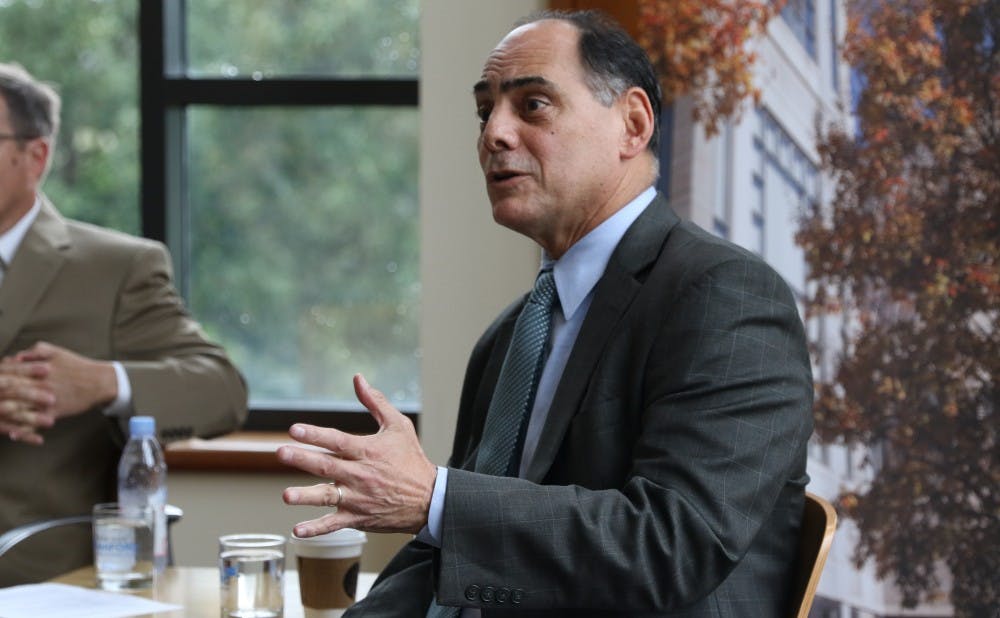As much as the election of President Donald Trump has ushered in a period of uncertainty and change to domestic policy and American society, it also has muddled a clear sense of America's foreign policy.
The American Grand Strategy program, Triangle Institute for Security Studies and the Sanford School of Public Policy hosted an event Tuesday evening to address U.S. foreign policy under Trump. Attended by roughly 40 Duke community members, the event was moderated by Peter Feaver, professor of political science and public policy, and featured Jim Carafano, a national security and foreign policy expert and vice president of the conservative think tank The Heritage Foundation. Carafano explained his take on the Trump administration’s foreign policy strategy.
“We have had a succession of failed efforts to create a larger political consensus of what American foreign policy should be, but we don’t have [a consensus]," Carafano said. "I don’t think this president is trying to articulate that."
Carafano noted that America's foreign policy strategy would ideally be guided by “overarching political consensus” that directs policy- and decision-making but explained that such consensus has been lacking since the end of the Cold War.
Although he sensed a lack of strategic direction in the Trump administration’s current foreign policy, Carafano suggested that President Trump and his advisors don’t want the United States to withdraw from the world in the "way that [President Barack Obama] did” in such that “everything got worse.”
For many, then-candidate Trump’s proverbial campaign slogan during the 2016 presidential election, “America First,” hinted at strict isolationism that would define how his future administration would approach matters of foreign policy and international intervention. However, Carafano denied that the catchphrase was a carrier of isolationist tendencies.
“They’re not isolationistic in any way whatsoever. That’s completely mythical,” Carafano said.
He contrasted isolationist policy with the foreign policy strategy of the George W. Bush administration, which consisted of “very muscularly going forth into the world and setting strategic conditions.” Instead, Carafano’s conception of the Trump foreign policy creed was to strike a balance between the failed foreign policies of Trump’s two predecessors.
“They want the world to just kind of roll along in a way that doesn’t threaten the vital interests of the United States. Their answer for that is, if Europe is relatively stable, the Middle East is relatively stable and Asia’s relatively stable—those are the three vital areas of the world that we engage with,” Carafano explained.
Carafano summed up the Trump administration’s foreign policy strategy as “forward presence,” which he defined as identifying the parts of the world that are important and being present in those areas with military, political and economic power.
“You demonstrate the willingness and capacity and capability to defend your interests," he said. "That is then a calming influence that settles that part of the world down and then you kind of try to maintain that status quo and focus on economic growth and productivity inside of the United States.”
As for Russia and China, Carafano predicted that the U.S. will develop more aggression and antagonism toward the two nations as both try to expand their influences on regions where American interests can be threatened.
Get The Chronicle straight to your inbox
Signup for our weekly newsletter. Cancel at any time.

